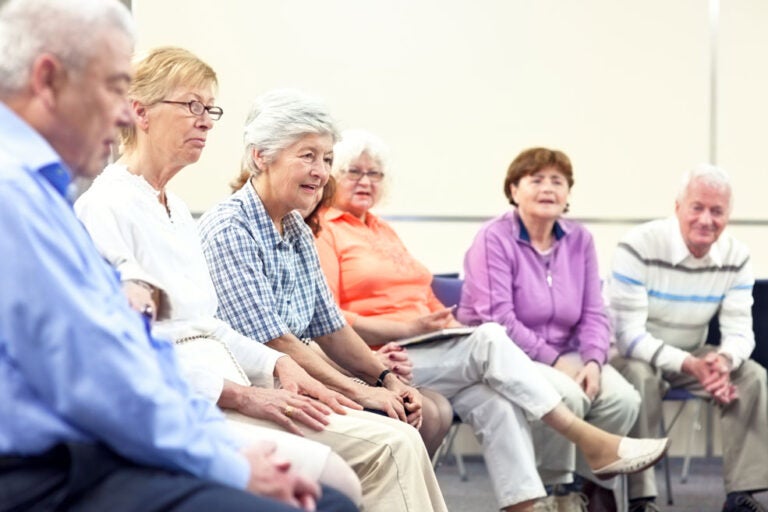Psychological research over two decades shows that cultivating gratitude offers people of all ages emotional and social benefits. There’s now evidence that starting in mid-adulthood, people naturally tend to become more grateful. That is good news for older adults.
“As you get older, you realize life is short. You might not live forever,” says Dr. William Chopik, associate professor of psychology at Michigan State University and director of MSU’s Close Relationships Lab. As a result, “you invest in stuff that makes you happy and gives you good well-being.”
For example, older adults are more likely to maintain healthy relationships. They are also less willing to put up with frustrating ties younger people may endure for personal and career goals.
To learn more about how gratitude affects us as we age, we spoke to some gratitude experts. They also offered some tips for how we can cultivate it in our lives
A Shift of Perspective
With aging comes perspective. “A lot of people, by the time they retire, are dealing with the loss of loved ones. There’s also loss of physical capacities. It’s part of aging,” says Kristi Nelson, executive director of the nonprofit A Network for Grateful Living and author of “Wake Up Grateful.”
Gratitude helps us focus on how we want to “show up to life,” she says, instead of concentrating on what we can’t do.
“How much do you put yourself in the way of beauty, of joy? How much do you prioritize generosity and appreciation? The deep unconditional quality of life we’re longing for in retirement can come from relieving ourselves of some of the pressures of doing to focus more on the privilege of being.”
“Instead of looking at aging as a time of decline, look at it in a more positive light,” says Susan Stiles, senior director of product development and strategy for the National Council on Aging (NCOA). “How can one continue to live a life of purpose and meaning?”
The organization offers the Aging Mastery Program®. This personalized, 10-part program helps people reflect on what it means to get older and reframe their attitudes toward aging. Gratitude is the first subject the program covers.
“It’s not enough just to talk about what are the best steps to good health and good financial stewardship and everything,” says Stiles. “The attitude that you have going into it and what you think about what it will mean to live these long lives—that is hugely important.”
How to Cultivate Gratitude
While gratitude is apt to increase as you get older, you can help the process along in various ways. Here are some tips that can help you cultivate the attitude and reap its benefits in retirement.
Practice appreciation. Bring your awareness to how everything in your life matters. None of us know how long we will live, an idea that helps us appreciate what we have right now. “There’s a gift in aging, which is that we can’t escape the awareness that life doesn’t last forever,” says Nelson. “We can turn that into a blessing that motivates us to be the way we want to be.”
Keep a gratitude journal. Participants in the Aging Mastery Program® keep a daily journal in which they note one, two, or three things they’re grateful for each day, whether that be the arrival of a new grandchild, the taste of a fresh apple, or simply being alive.
Take time to reflect. Whether you’re keeping a gratitude journal or not, Stiles recommends finding moments each day to pause and recognize gratitude: “Maybe it’s a moment of reflection. Maybe it is a moment when you’re walking into a store, and you’re grateful for the fact that there’s such an abundance of food there. It’s being able to incorporate the little moments of gratitude into your daily life.”
Whether you employ these strategies or find other ways to bring more gratitude into your life, you’ll be pursuing a data-backed method of increasing your happiness and health. As Nelson says, this is a gift we can give ourselves as we age: “We get the chance to live in more of a state of contentment as we age, rather than perpetual discontent or perpetual striving.”
Seniority is published by Finance of America Reverse LLC. The views expressed in this publication are those of the author alone and do not necessarily reflect the views and opinions of Finance of America Companies. This article is intended for general informational and educational purposes only and should not be construed as financial or tax advice. For more information about whether a reverse mortgage may be right for you, you should consult an independent financial advisor. For tax advice, please consult a tax professional.




